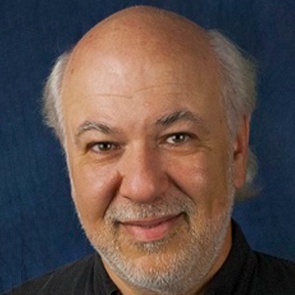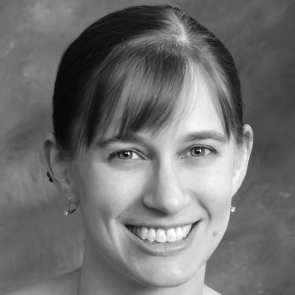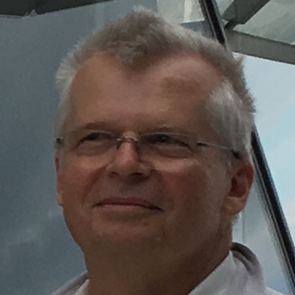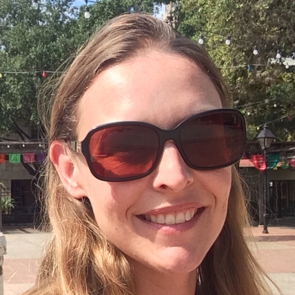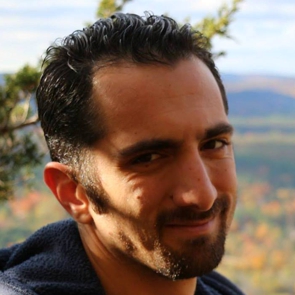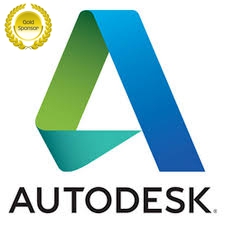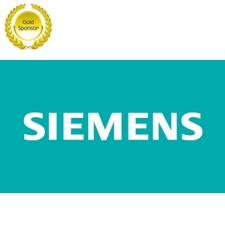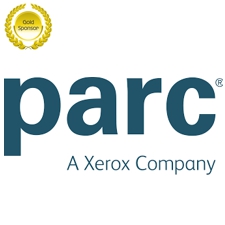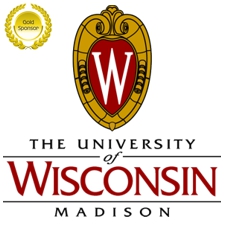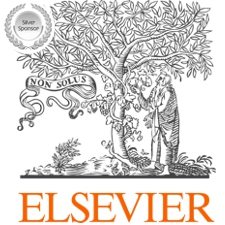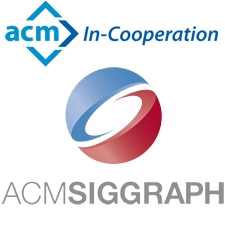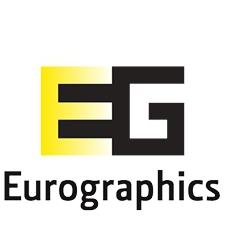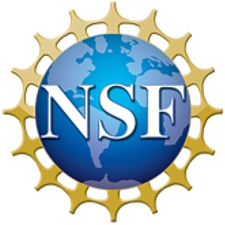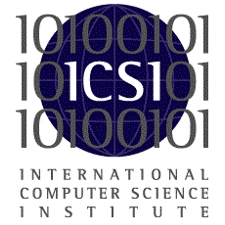S3PM-2017 :: International Convention on
Shape, Solid, Structure, & Physical Modeling
Design, Modeling, Representation, Processing, Analysis, and Visualization of Shapes, Solids, Structures, Materials, Properties, and Behaviors.
Dinner availability cannot be guaranteed if registered after June 7th.
For Five Days,
discuss the research frontiers of Shape, Solid, Structure, & Physical Modeling (S3PM).
S3PM primarily focuses on the mathematical & algorithmic principles, as well as practical tools, for the design, modeling, representation, processing, analysis, and visualization of shapes, solids, structures, materials, properties, and behaviors.
S3PM-2017 will combine the two prime conferences in this area: (1) the Symposium on Solid and Physical Modeling (SPM); and (2) the Shape Modeling International (SMI) Symposium. It will also Include the Fabrication and Sculpting Event (FASE), the Pierre Bézier Award Ceremony held by the Solid Modeling Association (SMA), keynote speakers of international reputation, industry panels, and several mini-symposia on important cutting-edge topics and research directions.
Design
Modeling
Representation
Processing
Analysis
Visualization
Shape
Solid
Structure
Material
Properties
Behavior
Convention Program
A full week of great talks, discussions, & fun!
- Day 1, June 19th
MON: SPM - Day 2, June 20th
TUE: SPM - Day 3, June 21st
WED: SPM + SMI - Day 4, June 22nd
THU: SMI - Day 5, June 23rd
FRI: SMI
Lobby (#300)
Continental Breakfast & On-Site Registration
Auditorium (#310)
SPM Opening & Introductions
Session Chair: Stefanie Hahmann, Ensimag & INRIA
Auditorium (#310)
SPM A Paper Presentations
Shape Analysis and Representation - Part I
Session Chair: Jörg E. Peters, Univ. of Florida
![]() SPM-A-1 "Detecting the Intersection of Two Convex Shapes by Searching on the 2-Sphere"
SPM-A-1 "Detecting the Intersection of Two Convex Shapes by Searching on the 2-Sphere"
-Samuel Hornus
Presentation Time: 09:00 - 09:25
![]() SPM-A-2 "Over-Constraints Detection and Resolution in Geometric Equation Systems"
SPM-A-2 "Over-Constraints Detection and Resolution in Geometric Equation Systems"
-Hao Hu, Mathias Kleiner, and Jean-Philippe Pernot
Presentation Time: 09:25 - 09:50
![]() SPM-A-3 "Rasterized Planar Face Complex"
SPM-A-3 "Rasterized Planar Face Complex"
-Guillaume Damiand and Jarek Rossignac
Presentation Time: 09:50 - 10:15
Lobby (#300)
Coffee Break
Auditorium (#310)
SPM B Paper Presentations
Shape Analysis and Representation - Part II
Session Chair: Gershon Elber, Technion
![]() SPM-B-1 "Robust Free Space Construction for a Polyhedron with Planar Motion"
SPM-B-1 "Robust Free Space Construction for a Polyhedron with Planar Motion"
-Elisha Sacks, Nabeel Butt, and Victor Milenkovic
Presentation Time: 10:45 - 11:10
![]() SPM-B-2 "A General Framework for 3D Model Co-alignment"
SPM-B-2 "A General Framework for 3D Model Co-alignment"
-Xuanmeng Xie, Shan Luo, and Jieqing Feng
Presentation Time: 11:10 - 11:35
![]() SPM-B-3 "Diffusion-based Non-uniform Regularization for Variational Shape Deformation"
SPM-B-3 "Diffusion-based Non-uniform Regularization for Variational Shape Deformation"
(Invited CAD paper)
-Lifeng Zhu, Wei Li, Xiaorui Zhang, and Aiguo Song
Presentation Time: 11:35 - 12:00
Bancroft Hotel
Lunch Break
Auditorium (#310)
SPM ✦ Keynote Speech (1)
Computation of Frame Fields Using Ginzburg-Landau Functional:
Application to Quad and Hex Meshing
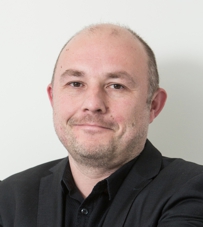 Keynote Speaker: Jean-François Remacle, Professor at Univ. Catholique de Louvain
Keynote Speaker: Jean-François Remacle, Professor at Univ. Catholique de Louvain
This presentation essentially deals with indirect (quad-) hex-dominant. Several topics will be covered: -Frame fields are an essential tool for constructing such meshes. We propose here a formulation that is based on Gizburg-Landau functional. -Hex-dominant meshing relies on the detection of adjacent tetrahedra that may be combined to form hexahedra. In this presentation, we introduce a new algorithm that performs this identification and build the largest set of potential hexes from an input tetrahedral mesh. -Parallelization of the whole mesh generation process on a Knigh’s Landing architecture is also presented.
Session Chair: Mario Botsch, Bielefeld Univ.
Auditorium (#310)
SPM C Paper Presentations
Parametric Representation and Refinement
Session Chair: Xiaoping Qian, UW-Madison
![]()
![]() SPM-C-1 "Improved Shape for Refinable Surfaces with Singularly Parameterized Irregularities"
SPM-C-1 "Improved Shape for Refinable Surfaces with Singularly Parameterized Irregularities"
-Kestutis Karciauskas and Jörg E. Peters
Presentation Time: 15:10 - 15:35
![]() SPM-C-2 "Patchwork B-Spline Refinement"
SPM-C-2 "Patchwork B-Spline Refinement"
-Nora Engleitner and Bert Jüttler
Presentation Time: 15:35 - 16:00
![]() SPM-C-3 "Solving Piecewise Polynomial Constraint Systems with Decomposition Using Subdivision-Based Solver"
SPM-C-3 "Solving Piecewise Polynomial Constraint Systems with Decomposition Using Subdivision-Based Solver"
-Boris van Sosin and Gershon Elber
Presentation Time: 16:00 - 16:25
Lobby (#300)
Coffee Break
Auditorium (#310)
SPM D Paper Presentations
Parametric Design and Surface Construction
Session Chair: Michael Barton, BCAM
![]() SPM-D-1 "P-Curves and Surfaces: Parametric Design with Global Fullness Control"
SPM-D-1 "P-Curves and Surfaces: Parametric Design with Global Fullness Control"
-István Kovács and Tamás Várady
Presentation Time: 16:45 - 17:10
![]() SPM-D-2 "Surface Reconstruction by Computing Restricted Voronoi Cells in Parallel"
SPM-D-2 "Surface Reconstruction by Computing Restricted Voronoi Cells in Parallel"
-Dobrina Boltcheva and Bruno Levy
Presentation Time: 17:10 - 17:35
![]() SPM-D-3 "Isogeometric Segmentation: Construction of Cutting Surfaces"
SPM-D-3 "Isogeometric Segmentation: Construction of Cutting Surfaces"
-Michael Haberleitner and Bert Jüttler
Presentation Time: 17:35 - 18:00
Lobby (#300)
SPM Reception
Lobby (#300)
Continental Breakfast
Auditorium (#310)
SPM E Paper Presentations
Mesh Processing
Session Chair: Leif Kobbelt, RWTH Aachen Univ.
![]() SPM-E-1 "Distributed Poly-square Mapping for Large-scale Semi-structured Quad Mesh Generation"
SPM-E-1 "Distributed Poly-square Mapping for Large-scale Semi-structured Quad Mesh Generation"
-Celong Liu, Wuyi Yu, Zhonggui Chen, and Xin Li
Presentation Time: 09:00 - 09:25
![]()
![]() SPM-E-2 "Disjoint Convex Shell and its Applications in Mesh Unfolding"
SPM-E-2 "Disjoint Convex Shell and its Applications in Mesh Unfolding"
-Yun-Hyeong Kim, Zhonghua Xi, and Jyh-Ming Lien
Presentation Time: 09:25 - 09:50
![]() SPM-E-3 "An Optimization-driven Approach for Computing Geodesic Paths on Triangle Meshes"
SPM-E-3 "An Optimization-driven Approach for Computing Geodesic Paths on Triangle Meshes"
-Bangquan Liu, Shuangmin Chen, Shiqing Xin, Ying He, Zhen Liu, and Jieyu Zhao
Presentation Time: 09:50 - 10:15
Lobby (#300)
Coffee Break
Auditorium (#310)
SPM F Paper Presentations
Additive Manufacturing
Session Chair: Charlie C. L. Wang, TU Delft
![]() SPM-F-1 "Lattice Structure Lightweight Triangulation for Additive Manufacturing"
SPM-F-1 "Lattice Structure Lightweight Triangulation for Additive Manufacturing"
-Laurent Chougrani, Jean-Philippe Pernot, and Philippe Veron
Presentation Time: 10:45 - 11:10
![]() SPM-F-2 "Sample-based Synthesis of Two-scale Structures with Anisotropy"
SPM-F-2 "Sample-based Synthesis of Two-scale Structures with Anisotropy"
-Xingchen Liu and Vadim Shapiro
Presentation Time: 11:10 - 11:35
![]() SPM-F-3 "Support Structure Constrained Topology Optimization for Additive Manufacturing"
SPM-F-3 "Support Structure Constrained Topology Optimization for Additive Manufacturing"
(Invited CAD paper)
-Amir M. Mirzendehdel and Krishnan Suresh
Presentation Time: 11:35 - 12:00
Bancroft Hotel
Lunch Break
Auditorium (#310)
SPM ✦ Keynote Speech (2)
Driving 3D and 4D Printing Forward with Computational Design
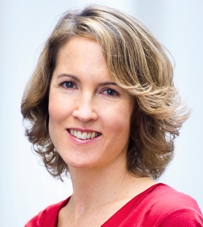 Keynote Speaker: Kristina Shea, Professor at ETH Zürich
Keynote Speaker: Kristina Shea, Professor at ETH Zürich
The recent rise in digital fabrication, including 3D and 4D printing, may be the best thing that has ever happened to the area of computational design. For years we have been developing algorithms and methods for automatically generating and optimizing designs from large, complex solution spaces. Today, designers struggle with just this, to design parts that take full advantage of the complex shapes and material combinations that are now possible with 3D printing. 4D printing extends on this to enable designs to reconfigure themselves in time after printing. This is a new and exciting playground for computational design. Highlights of our research on novel methods for automatically generating, simulating, and optimizing structural and mechanical systems that can be directly fabricated with 3D printing are presented. The focus is on a multi-material polymer-based process that has also enabled the development of tunable, multi-stable, reconfigurable 4D printed structures.
Session Chair: Yongjie (Jessica) Zhang, Carnegie Mellon Univ.
Lobby (#300)
Coffee Break
Auditorium (#310)
SPM G Paper Presentations
3D Model Decomposition and Volumes
Session Chair: Myung-Soo Kim, Seoul National Univ.
![]() SPM-G-1 "Automatic Decomposition of 3D-Solids into Contractible Pieces Using Reeb Graphs"
SPM-G-1 "Automatic Decomposition of 3D-Solids into Contractible Pieces Using Reeb Graphs"
-Birgit Strodthoff and Bert Jüttler
Presentation Time: 15:20 - 15:45
![]() SPM-G-2 "Explicit Cylindrical Maps for Volumes with Arbitrary Topology"
SPM-G-2 "Explicit Cylindrical Maps for Volumes with Arbitrary Topology"
-Marco Livesu, Marco Attene, Giuseppe Patanè, and Michela Spagnuolo
Presentation Time: 15:45 - 16:10
![]() SPM-G-3 "Precise Algebraic-based Swept Volumes for Arbitrary Free-form Shaped Tools Towards Multi-axis CNC Machining Verification"
SPM-G-3 "Precise Algebraic-based Swept Volumes for Arbitrary Free-form Shaped Tools Towards Multi-axis CNC Machining Verification"
-Jinesh Machchhar, Denys Plakhotnik, and Gershon Elber
Presentation Time: 16:10 - 16:35
Auditorium (#310)
SPM Best Paper Awards & Business Meeting
SPM General Assembly
Session Chair: Jarek Rossignac, Georgia Tech
SPM Best Paper Awards
SPM-2018 Announcement
Session Chair: Michael Barton, BCAM
Auditorium (#310)
Short Startup Talks + Q&A
Geometry in Action: Startup Ideas & Challenges
Session Chair: Ye Wang, Onshape
Join us for mini talks and Q&A sessions by startup companies building cutting edge products and services.
GiA-T-01 "Challenges in Developing CAD for the Future"
-Ye Wang
GiA-T-02 "From Academic Project to a Commercial Product"
-Alec Rivers
GiA-T-03 "Building Physics Analysis for the Web"
-Andrew Taber
GiA-T-04 "Designing Custom-fit Prosthetics"
-Jeff Huber
GiA-T-05 "A Factory at Your Fingertips: Automated Manufacturing at Plethora"
-Wesley Smith
GiA-T-06 "Non-linear Optimization of Geometric Properties"
-Andrew Zukoski
GiA-T-07 "Just Make a Bigger One!"
-Sam Prest
Lobby (#300)
Continental Breakfast & Poster Setup
Auditorium (#310)
SMA Pioneers & Bézier Awards
Auditorium (#310)
MS-1 Mini-Symposium (Track 1)
Architected Materials
Session Chair: Jan Vandenbrande, DARPA
The biggest problem with solid modeling is the first word: solid. When solid modeling was first conceived about 40 years ago, it was aimed to represent machined parts made out of iso-tropic materials, meaning metals. We have now reached a point where advances in manufacturing technology enables us fine grained control over material properties at each point in space. Unfortunately, our design tools have not kept up with these technologies, and are not capable of representing nor synthesizing the complex interaction of shape with custom, space varying, material properties.
The aim of this workshop is to provide insight into the challenges faced by researchers and practitioners who are modeling new material architectures and the implication for design. The intent is to cover a range of new of materials across several domains (e.g., woven structures, dielectrics, and metals).
MS-1-1: "Weaving Rocks"
-Brian Cox
Presentation Time: 09:40 - 10:00
MS-1-2: "Modeling and Analysis of Thin and Curvy Stuff"
-Jon Gosse
Presentation Time: 10:00 - 10:20
MS-1-3: "Printing Voltage Ladders"
-Rob Sharpe
Presentation Time: 10:20 - 10:40
Classroom (#250)
MS-2 Mini-Symposium (Track 2)
Geometric Representations for Integrating
Isogeometric Design and Analysis - Part I
Session Chair: Xiaoping Qian, UW-Madison
Isogeometric analysis aims to bridge the geometric divide between CAD systems and FEA software tools. Over the last decade, research in isogeometric design and analysis has undergone tremendous growth and has led to substantial progress in both computer-aided design and finite element analysis fields. Different geometric representations such as NURBS, T-splines, triangular splines, manifold basis, and subdivision surfaces have been investigated for use in isogeometric analysis and integration with CAD. This minisymposium aims to capture the state-of-the-art regarding theoretical foundations and computational methods in geometric representations for integrating CAD and analysis.
MS-2-1: "Volumetric Spline Models for Isogeometric Analysis"
-Bert Jüttler
Presentation Time: 09:40 - 10:00
MS-2-2: "Generalizing Splines for Design and IGA with Irregular Layout"
-Jörg E. Peters
Presentation Time: 10:00 - 10:20
MS-2-3: "Triangular Bézier Splines for Integrating Design and Analysis"
-Xiaoping Qian
Presentation Time: 10:20 - 10:40
Lobby (#300)
Coffee Break
Auditorium (#310)
MS-3 Mini-Symposium (Track 1)
Fabrication-Aware Design
Session Chair: Helmut Pottmann, TU Wien
Geometric Modeling has so far mainly been restricted to pure shape modeling with little or no consideration of material properties, functionality and fabrication. This leads to a costly product development process with multiple feedback loops between design, engineering and fabrication. The proposed minisymposium presents recent progress on modeling systems which consider or even model material properties and other key aspects of function and fabrication of the final product already in the design phase. The three presenters address different aspects of this stream of research: (i) Barton presents results on efficient fabrication of freeform geometry with a focus on architecture and CNC machining and outlines the combination of this work with interactive design, (ii) Elber presents a novel approach for modeling of microstructures and porous materials, and (iii) Tang presents a computational approach for interactive design in the presence of nonlinear constraints. The constraints express material behavior (unstretchable material) and key issues in architectural geometry (panelization, substructure and statics).
MS-3-1: "Geometric Modeling with Manufacturable Surfaces"
-Michael Barton
Presentation Time: 11:00 - 11:20
MS-3-2: "Precise Construction of Micro-structures and Porous Geometry via Functional Composition"
-Gershon Elber
Presentation Time: 11:20 - 11:40
MS-3-3: "Guided Projection for Computational Design"
-Chengcheng Tang
Presentation Time: 11:40 - 12:00
Classroom (#250)
MS-4 Mini-Symposium (Track 2)
Geometric Representations for Integrating
Isogeometric Design and Analysis - Part II
Session Chair: Xiaoping Qian, UW-Madison
Isogeometric analysis aims to bridge the geometric divide between CAD systems and FEA software tools. Over the last decade, research in isogeometric design and analysis has undergone tremendous growth and has led to substantial progress in both computer-aided design and finite element analysis fields. Different geometric representations such as NURBS, T-splines, triangular splines, manifold basis, and subdivision surfaces have been investigated for use in isogeometric analysis and integration with CAD. This minisymposium aims to capture the state-of-the-art regarding theoretical foundations and computational methods in geometric representations for integrating CAD and analysis.
MS-4-1: "How to Build Smooth Splines on Unstructured Quadrilateral Meshes Suited for Isogeometric analysis?"
-Hendrik Speleers
Presentation Time: 11:00 - 11:20
MS-4-2: "U-Splines: Splines Over Unstructured Meshes"
-Derek Thomas and Mike Scott
Presentation Time: 11:20 - 11:40
MS-4-3: "Integrating CAD with Abaqus: A Practical Isogeometric Analysis Software Platform for Industrial Applications"
-Jessica (Yongjie) Zhang
Presentation Time: 11:40 - 12:00
Bancroft Hotel
Lunch Break
Auditorium (#310)
Industry & Government Panel
Directions for Transformative Research
Panelists:
-George Allen, Chief Technologist and Technical Fellow at Siemens PLM Software;
-Francesco Iorio, Head of Computational Science Research at Autodesk Research;
-Saigopal Nelaturi, Area Manager for Computation for Automation in Systems Engineering at PARC;
-Jack S. Snoeyink, Program Director, the Division of Computing and Communication Foundations at NSF;
-Vijay Srinivasan, Division Chief of the Systems Integration Division of the Engineering Laboratory at NIST;
-Jan Vandenbrande, Program Manager, the Defense Sciences Office at DRAPA;
Each invited panelist will deliver a 10 minute presentation, followed by a 5-minute Q&A session. The presentations will be followed by an open format discussion with all panelists and audience. They will:
- paint the vision for a roadmap of ambitious and transformative research;
- describe the latest, most innovative, and advanced technological developments;
- ground this vision in a global perspective of the historical evolution of research and industrial developments, as well as deployments in CAD/CAM and related fields;
- identify major research challenges and thrusts that our community must address;
- outline desired funding structures and industry/academia collaboration paradigms of the 21st century; and
- provide "man-on-moon" long-term challenges that will rally community efforts.
Session Chair: Vadim Shapiro, UW-Madison & ICSI
Lobby (#300)
Coffee Break
Auditorium (#310)
MS-5 Mini-Symposium (Track 1)
Generative Design for Additive Manufacturing
Session Chair: Michael Y. Wang, HKUST Robotics Institute
This mini-symposium is seeking to create a great opportunity and provide a communication platform to bring together researchers, who are working in a broad range of aspects of shape and topology optimization methods and applications. We particularly encourage submissions addressing recent advances in shape and topology optimization of interdisciplinary areas, spanning fluidics, thermal, and electromagnetism, as well as solids, structures and materials.
MS-5-1: "Project Dreamchatcher: First Steps in Generative Design"
-Francesco Iorio
Presentation Time: 16:20 - 16:40
MS-5-2: "Topology Optimization versus Cellular Lattices"
-Michael Y. Wang
Presentation Time: 16:40 - 17:00
MS-5-3: "Supporting-free Infill Modeling for Additive Manufacturing"
-Charlie C. L. Wang
Presentation Time: 17:00 - 17:20
Classroom (#250)
MS-6 Mini-Symposium (Track 2)
Machine Learning for Geometric Computing and Design
Session Chair: Stella Yu, ICSI
Deep learning has delivered tremendous success for language and image understanding. It is nontheless still at an early stage for 3D data understanding, which is important not only for a variety of computer vision and graphics research topics, but also for a wide range of practical applications in manufacturing and design. Unlike text or images that can be represented as 1D or 2D numerical arrays, 3D data have multiple representational choices, such as volumes, polygonal meshes, depth maps, and point clouds, each tailored to specific application scenarios. They are additionally subject to more and stronger physical modeling and structural constraints, e.g. connectivity and stability. These two aspects about 3D data, representations and constraints, open up new challenges and opportunities in machine learning. In this mini-symposium, we will invite leading researchers to present their work on structural parsing, model completion, style transfer, and design discovery from their big 3D data, and discuss how to effectively represent 3D data and incorporate physical constraints into deep learning for geometric computing.
MS-6-1: "A Point Set Generation Network for 3D Object Reconstruction from a Single Image"
-Hao Su
Presentation Time: 16:20 - 16:35
MS-6-2: "Learning 3D by Seeing in 2D through In-Network Perspective Cameras"
-Ersin Yumer
Presentation Time: 16:35 - 16:50
MS-6-3: "LEGOBot - Training on Synthesized 3D Data to Enable Robots to Make with LEGO"
-Yotto Koga and Mike Haley
Presentation Time: 16:50 - 17:05
MS-6-4: "Deep Form - Understanding and Synthesizing 3D Shapes with Machine Learning"
-Ara Danielyan and Mike Haley
Presentation Time: 17:05 - 17:20
Lobby (#300)
SPM+SMI Joint Poster Session
SPM Posters
![]() SPM-P-01 "Towards Integrating Topology Optimization and Additive Manufacturing"
SPM-P-01 "Towards Integrating Topology Optimization and Additive Manufacturing"
-Amir M. Mirzendehdel and Krishnan Suresh
![]() SPM-P-02 "Averaging Compatible Surfaces for Free-form Tolerancing"
SPM-P-02 "Averaging Compatible Surfaces for Free-form Tolerancing"
-Mukul Sati and Jarek Rossignac
![]() SPM-P-03 "Steadied Lattice Structures"
SPM-P-03 "Steadied Lattice Structures"
-Ashish Gupta and Jarek Rossignac
![]() SPM-P-04 "Automatic Learning of User Design Rationales from Examples"
SPM-P-04 "Automatic Learning of User Design Rationales from Examples"
-Yao-Yi Chiang, Abhishek Jain, Bhaskar Bandyopadhyay, and Craig Knoblock
![]() SPM-P-05 "A Framework for Solid Modeling and Structural Analysis of Composites with Defects"
SPM-P-05 "A Framework for Solid Modeling and Structural Analysis of Composites with Defects"
-Onur Bingol, Bryan Schiefelbein, Robert Grandin, Stephen Holland, and Adarsh Krishnamurthy
![]() SPM-P-06 "Folding Thick Origami via Stacking"
SPM-P-06 "Folding Thick Origami via Stacking"
-Zhonghua Xi, Yuki Lee, Huangxin Wang, Yun-Hyeong Kim, Yue Hao, In-Suk Choi, and Jyh-Ming Lien
![]() SPM-P-07 "Towards Thick Shells with Isostatic Microstructure"
SPM-P-07 "Towards Thick Shells with Isostatic Microstructure"
-Jörg E. Peters, Meera Sitharam, and Jeremy Youngquist
![]() SPM-P-08 "DTHB3D_Reg: Dynamic Truncated Hierarchical B-Spline Based 3D Nonrigid Image Registration"
SPM-P-08 "DTHB3D_Reg: Dynamic Truncated Hierarchical B-Spline Based 3D Nonrigid Image Registration"
-Aishwarya Pawar, Yongjie Zhang, Cosmin Anitescu, Yue Jia, and Timon Rabczuk
![]() SPM-P-09 "Voronoi Cells of Non-general Position Spheres Using the GPU"
SPM-P-09 "Voronoi Cells of Non-general Position Spheres Using the GPU"
-Zhongyin Hu, Xiang Li, Adarsh Krishnamurthy, Iddo Hanniel, and Sara McMains
![]() SPM-P-10 "Power Histogram for Circle Detection on Images"
SPM-P-10 "Power Histogram for Circle Detection on Images"
-Bodi Yuan and Min Liu
![]() SPM-P-11 "On Interoperability Challenges and Scenarios"
SPM-P-11 "On Interoperability Challenges and Scenarios"
-Morad Behandish and Vadim Shapiro
![]() SPM-P-12 "Toward Optimal Sensor Placement in 3D Architectural CAD"
SPM-P-12 "Toward Optimal Sensor Placement in 3D Architectural CAD"
-Young Min Kim and Chandrajit Bajaj
SMI Posters
![]() SMI-P-01 "Computing Mass Properties of Objects with Continuously Varying Density Distributions"
SMI-P-01 "Computing Mass Properties of Objects with Continuously Varying Density Distributions"
-Suraj Musuvathy and George Allen
![]() SMI-P-02 "Efficient Point Membership Classification on Similarity-steady Patterns"
SMI-P-02 "Efficient Point Membership Classification on Similarity-steady Patterns"
-Kelsey H. Kurzeja and Jarek Rossignac
![]() SMI-P-03 "Splat Rendering Enhancement via Super Resolution"
SMI-P-03 "Splat Rendering Enhancement via Super Resolution"
-Giang Bui, Truc Le, and Ye Duan
![]() SMI-P-04 "Extraction of Woven Structures of Daily Goods from X-ray CT Volumes"
SMI-P-04 "Extraction of Woven Structures of Daily Goods from X-ray CT Volumes"
-Yukie Nagai, Yutaka Ohtake, and Hiromasa Suzuki
![]() SMI-P-05 "Individual Tree Mapping from LiDAR Point Clouds based on Topological Tools"
SMI-P-05 "Individual Tree Mapping from LiDAR Point Clouds based on Topological Tools"
-Federico Iuricich, Xin Xu, and Leila De Floriani
![]() SMI-P-06 "An Exact and Efficient 3D Mesh Intersection Algorithm Using Only Orientation Predicates"
SMI-P-06 "An Exact and Efficient 3D Mesh Intersection Algorithm Using Only Orientation Predicates"
-Salles Viana Gomes de Magalhaes, W. Randolph Franklin, and Marcus V. A. Andrade
FASE Posters
![]() FASE-P-01 "Toolpath Planning for Continuous Extrusion Additive Manufacturing"
FASE-P-01 "Toolpath Planning for Continuous Extrusion Additive Manufacturing"
-Chloe Fleming, Stephanie Walker, Callie Branyan, Austin Nicolai, Geoffrey Hollinger, and Yigit Menguc
![]() FASE-P-02 "Modeling in ShapeJS"
FASE-P-02 "Modeling in ShapeJS"
-Vladimir Bulatov and Alan Hudson
![]() FASE-P-03 "Toward Fabricating Rigid Wireframes from Z-Bent Helical Springs"
FASE-P-03 "Toward Fabricating Rigid Wireframes from Z-Bent Helical Springs"
-James Mallos
Berkeley City Club
S3PM Convention Dinner
Lobby (#300)
Continental Breakfast
Auditorium (#310)
SMI Opening & Introductions
Session Chair: Daniele Panozzo, NYU
Auditorium (#310)
SMI A Paper Presentations
Reconstruction
Session Chair: Nina Amenta, UC Davis
![]() SMI-A-1 "Patterns from photograph: Reverse-engineering Developable Products"
SMI-A-1 "Patterns from photograph: Reverse-engineering Developable Products"
-Amélie Fondevilla, Adrien Bousseau, Damien Rohmer, Stefanie Hahmann, and Marie-Paule Cani
Presentation Time: 09:00 - 09:25
![]() SMI-A-2 "Accurate 3D Face Reconstruction via Prior Constrained Structure from Motion"
SMI-A-2 "Accurate 3D Face Reconstruction via Prior Constrained Structure from Motion"
-Matthias Thomas Hernandez, Jongmoo Choi, Tal Hassner, and Gerard Medioni
Presentation Time: 09:25 - 09:50
![]() SMI-A-3 "Extraction of Tubular Shapes from Dense Point Clouds and Application to Tree Reconstruction from Laser Scanned Data"
SMI-A-3 "Extraction of Tubular Shapes from Dense Point Clouds and Application to Tree Reconstruction from Laser Scanned Data"
-Joris Ravaglia, Alexandra Bac, and Richard A Fournier
Presentation Time: 09:50 - 10:15
Lobby (#300)
Coffee Break
Auditorium (#310)
SMI B Paper Presentations
Visibility and Maps
Session Chair: Marco Livesu, CNR-IMATI
![]() SMI-B-1 "On the Visibility Locations for Continuous Curves"
SMI-B-1 "On the Visibility Locations for Continuous Curves"
-Sarang Joshi, Yoshida Rao, Bharath Ram Sundar, and Ramanathan Muthuganapathy
Presentation Time: 10:45 - 11:10
![]() SMI-B-2 "On Visibility and Empty-Region Graphs"
SMI-B-2 "On Visibility and Empty-Region Graphs"
-Sagi Katz and Ayellet A. L. Tal
Presentation Time: 11:10 - 11:35
![]() SMI-B-3 "Fast Mapping and Morphing for Genus-zero Meshes with Cross Spherical Parameterization"
SMI-B-3 "Fast Mapping and Morphing for Genus-zero Meshes with Cross Spherical Parameterization"
(Invited C&G paper)
-Chao Peng and Sabin Timalsena
Presentation Time: 11:35 - 12:00
Bancroft Hotel
Lunch Break
Auditorium (#310)
SMI ✦ Keynote Speech (1)
Digital Human Teleportation using Deep Learning
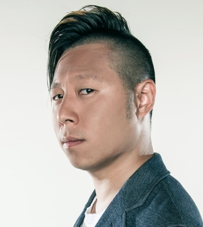 Keynote Speaker: Hao Li, CEO of Pinscreen & Professor at USC
Keynote Speaker: Hao Li, CEO of Pinscreen & Professor at USC
The age of immersive technologies will create a growing need for processing detailed visual representations of ourselves as virtual reality (VR) is growing into the next generation platform for online communication. A realistic simulation of our presence in such virtual world is unthinkable without a compelling and directable 3D digitization of ourselves. With the wide availability of mobile cameras and the emergence of low-cost VR head mounted displays (HMD), my research goal is to build a comprehensive and deployable teleportation framework for realistic 3D face-to-face communication in cyberspace. By pushing the boundaries in data-driven human digitization as well as bridging concepts in computer graphics and deep learning research, I will showcase several highlights of our current research, from photorealistic avatar creation from a single image, facial performance-sensing head mounted displays, and full-body dynamic shape capture...
Session Chair: Daniele Panozzo, NYU
Lobby (#300)
Coffee Break
Auditorium (#310)
SMI C Paper Presentations
Interactive Modeling
Session Chair: Jarek Rossignac, Georgia Tech
![]() SMI-C-1 "Height Field Construction Using Cross Contours"
SMI-C-1 "Height Field Construction Using Cross Contours"
-Tuan M. Bui, Junho Kim, and Yunjin Lee
Presentation Time: 15:20 - 15:45
![]() SMI-C-2 "Interactive Modeling of Smooth Manifold Meshes with Arbitrary Topology: G1 Stitched Bi-cubic Bézier Patches"
SMI-C-2 "Interactive Modeling of Smooth Manifold Meshes with Arbitrary Topology: G1 Stitched Bi-cubic Bézier Patches"
-Ergun Akleman, Vinod Srinivasan, and Jianer Chen
Presentation Time: 15:45 - 16:10
![]() SMI-C-3 "Shape from Sensors: Curve Networks on Surfaces from 3D Orientations"
SMI-C-3 "Shape from Sensors: Curve Networks on Surfaces from 3D Orientations"
-Tibor Stanko, Stefanie Hahmann, Georges-Pierre Bonneau, and Nathalie Saguin-Sprynski
Presentation Time: 16:10 - 16:35
Auditorium (#310)
FASE Paper Presentations
Fabrication and Sculpting
Session Chair: Ergun Akleman, Texas A&M
![]() FASE-F-1 "Reconfigurable Kinetic Polygons: An Approach to Design 2D Kinetic Tessellations"
FASE-F-1 "Reconfigurable Kinetic Polygons: An Approach to Design 2D Kinetic Tessellations"
-Negar Kalantar and Alireza Borhani
Presentation Time: 16:45 - 17:00
![]() FASE-F-2 "3D Modelling Seashells"
FASE-F-2 "3D Modelling Seashells"
-Francesco De Comité
Presentation Time: 17:00 - 17:15
![]() FASE-F-3 "Fabricating Functionally Graded Material Objects Using Trimmed Trivariate Volumetric Representations"
FASE-F-3 "Fabricating Functionally Graded Material Objects Using Trimmed Trivariate Volumetric Representations"
-Ben Ezair, Daniel Dikovsky, and Gershon Elber
Presentation Time: 17:15 - 17:30
![]() FASE-F-4 "Transformative Formworks: Toward Mass Customization of Double-curved Surfaces"
FASE-F-4 "Transformative Formworks: Toward Mass Customization of Double-curved Surfaces"
-Alireza Borhani and Negar Kalantar
Presentation Time: 17:30 - 17:45
UCB Faculty Club
SMI Reception
Lobby (#300)
Continental Breakfast
Auditorium (#310)
SMI D Paper Presentations
Shape Analysis
Session Chair: Ayellet A. L. Tal, Technion
![]() SMI-D-1 "A Multi-view Recurrent Neural Network for 3D Mesh Segmentation"
SMI-D-1 "A Multi-view Recurrent Neural Network for 3D Mesh Segmentation"
-Truc Le, Giang Bui, and Ye Duan
Presentation Time: 09:00 - 09:25
![]() SMI-D-2 "Hierarchical Forman Triangulation: A Multiscale Model for Scalar Field Analysis"
SMI-D-2 "Hierarchical Forman Triangulation: A Multiscale Model for Scalar Field Analysis"
-Federico Iuricich and Leila De Floriani
Presentation Time: 09:25 - 09:50
![]()
![]() SMI-D-3 "Hole Detection in a Planar Point Set: An Empty Disk Approach"
SMI-D-3 "Hole Detection in a Planar Point Set: An Empty Disk Approach"
-Subhasree Methirumangalath, Shyam Sundar Kannan, Amal Dev Parakkat, and Ramanathan Muthuganapathy
Presentation Time: 09:50 - 10:15
Lobby (#300)
Coffee Break
Auditorium (#310)
SMI E Paper Presentations
Meshes and Trusses for Fabrication
Session Chair: Mario Botsch, Bielefeld Univ.
![]() SMI-E-1 "Unsharp Masking Geometry Improves 3D Prints"
SMI-E-1 "Unsharp Masking Geometry Improves 3D Prints"
-Philipp Herholz, Sebastian Koch, Tamy Boubekeur, and Marc Alexa
Presentation Time: 10:45 - 11:10
![]() SMI-E-2 "Epsilon-maps: Characterizing, Detecting and Thickening Thin Features in Geometric Models"
SMI-E-2 "Epsilon-maps: Characterizing, Detecting and Thickening Thin Features in Geometric Models"
-Daniela Cabiddu and Marco Attene
Presentation Time: 11:10 - 11:35
![]() SMI-E-3 "Support-free Frame Structures"
SMI-E-3 "Support-free Frame Structures"
-Weiming Wang, Sicheng Qian, Liping Lin, Baojun Li, Bocai Yin, Ligang Liu, and Xiuping Liu
Presentation Time: 11:35 - 12:00
Bancroft Hotel
Lunch Break
Auditorium (#310)
SMI ✦ Keynote Speech (2)
Restricted Constrained Delaunay Triangulations
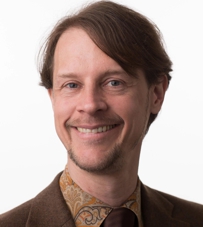 Keynote Speaker: Jonathan R. Shewchuk, Professor at UC Berkeley
Keynote Speaker: Jonathan R. Shewchuk, Professor at UC Berkeley
Surface meshes are used extensively in computer graphics, boundary element methods, and many other applications. Researchers have sought surface triangulations that have formal mathematical properties similar to those enjoyed by Delaunay triangulations in the plane. They succeeded by inventing the "restricted Delaunay triangulation," which is a subcomplex of the three-dimensional Delaunay triangulation. In other words, given a smooth surface embedded in three-dimensional space, we compute a set of points lying on the surface, we compute the 3D Delaunay triangulation of those points, and we select a subset of its triangles to serve as a triangulation of the surface. This subset of triangles, the restricted Delaunay triangulation, has proven itself as a mathematically powerful tool for surface meshing and surface reconstruction...
Session Chair: Marco Attene, IMATI-GE/CNR
Lobby (#300)
Coffee Break
Auditorium (#310)
SMI F Paper Presentations
Spatial Subdivisions
Session Chair: Ergun Akleman, Texas A&M
![]() SMI-F-1 "Parallel Quadtree Construction on Collections of Objects"
SMI-F-1 "Parallel Quadtree Construction on Collections of Objects"
-Nathan Morrical and John Edwards
Presentation Time: 15:20 - 15:45
![]() SMI-F-2 "A Novel Interpolation Scheme for Dual Marching Cubes on Octree Volume Fraction Data"
SMI-F-2 "A Novel Interpolation Scheme for Dual Marching Cubes on Octree Volume Fraction Data"
-Kim Seungki, Yutaka Ohtake, Yukie Nagai, and Hiromasa Suzuki
Presentation Time: 15:45 - 16:10
Auditorium (#310)
SMI G Paper Presentations
Fabrication with Lines and Panels
Session Chair: Yutaka Ohtake, RIKEN
![]() SMI-G-1 "Line Drawing for 3D Printing"
SMI-G-1 "Line Drawing for 3D Printing"
-Zhonggui Chen, Zifu Shen, Jianzhi Guo, Cao Juan, and Xiaoming Zeng
Presentation Time: 16:20 - 16:45
![]() SMI-G-2 "Interlocked Archimedean Spirals for Conversion of Planar Rigid Panels into Locally Flexible Panels with Stiffness Control"
SMI-G-2 "Interlocked Archimedean Spirals for Conversion of Planar Rigid Panels into Locally Flexible Panels with Stiffness Control"
-Saeid Zarrinmehr, Ergun Akleman, Mahmood Ettehad, Negar Kalantar, Alireza Borhani, and Shinjiro Sueda
Presentation Time: 16:45 - 17:10
Auditorium (#310)
SMI Best Paper Awards & Business Meeting
SMI General Assembly
Session Chair: Marco Attene, IMATI-GE/CNR
SMI Best Paper Awards
SMI-2018 Announcement
Session Chair: Ye Duan, Univ. of Missouri
Location and Venue
Great Lodging, Great Food, & Magnificent Sights
Get our official event app, powered by Whova:
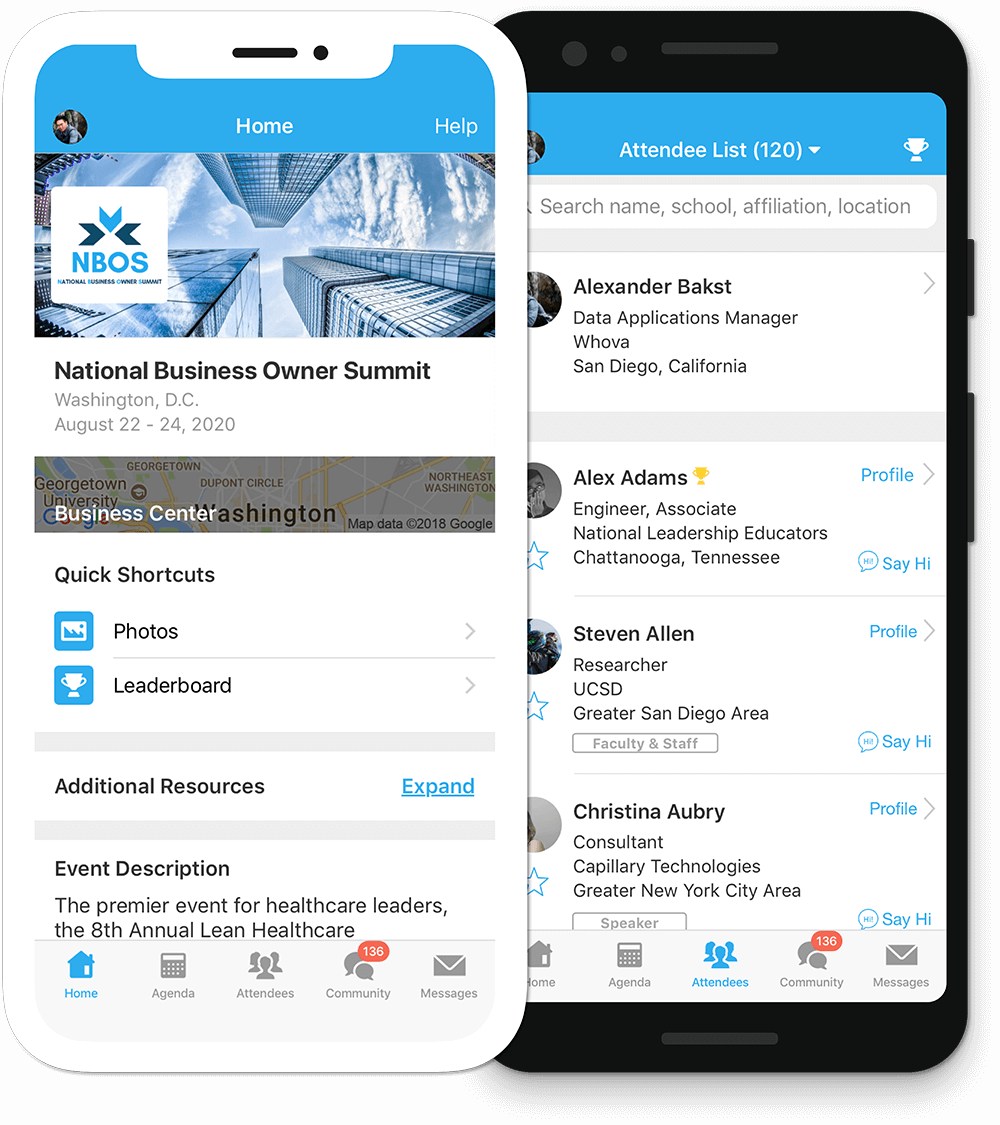
Get the most out of the app and have a more productive experience!
1
NAVIGATE the event agenda and logistics, even without Wi-Fi or data. Access useful information like ridesharing and local attractions through the Bulletin Board
2
NETWORK effectively. Plan whom to meet by exploring attendee profiles and sending out messages
3
PARTICIPATE in event activities through session likes, comments, ratings, live polling, tweeting, and more
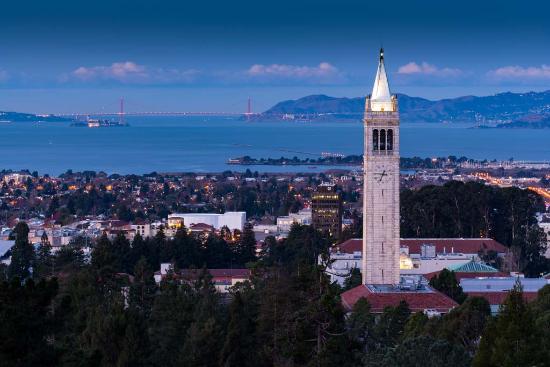
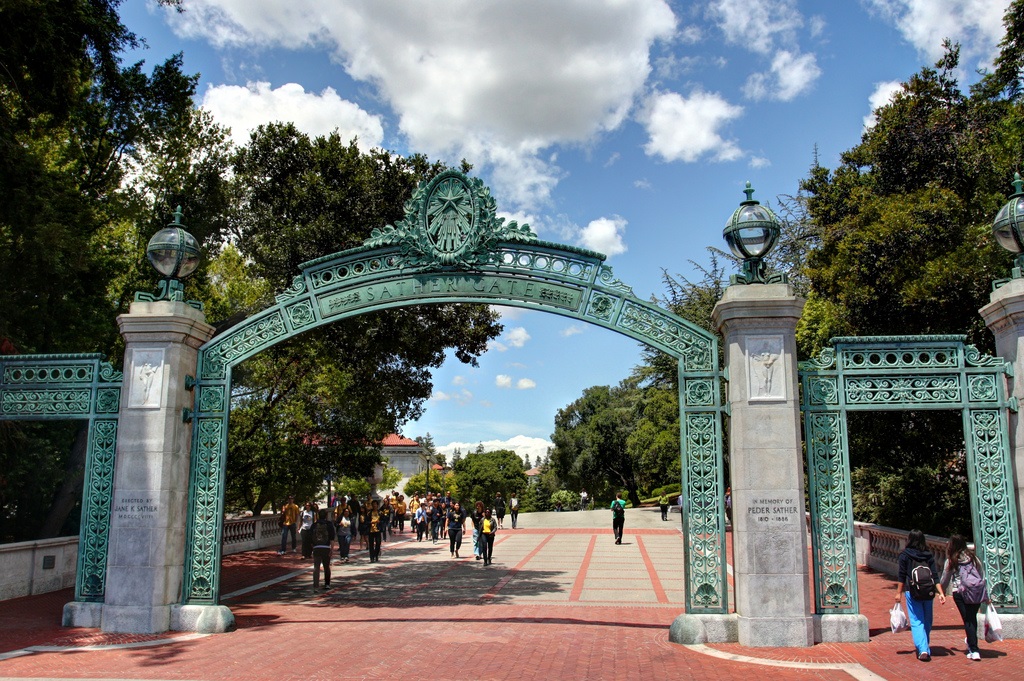



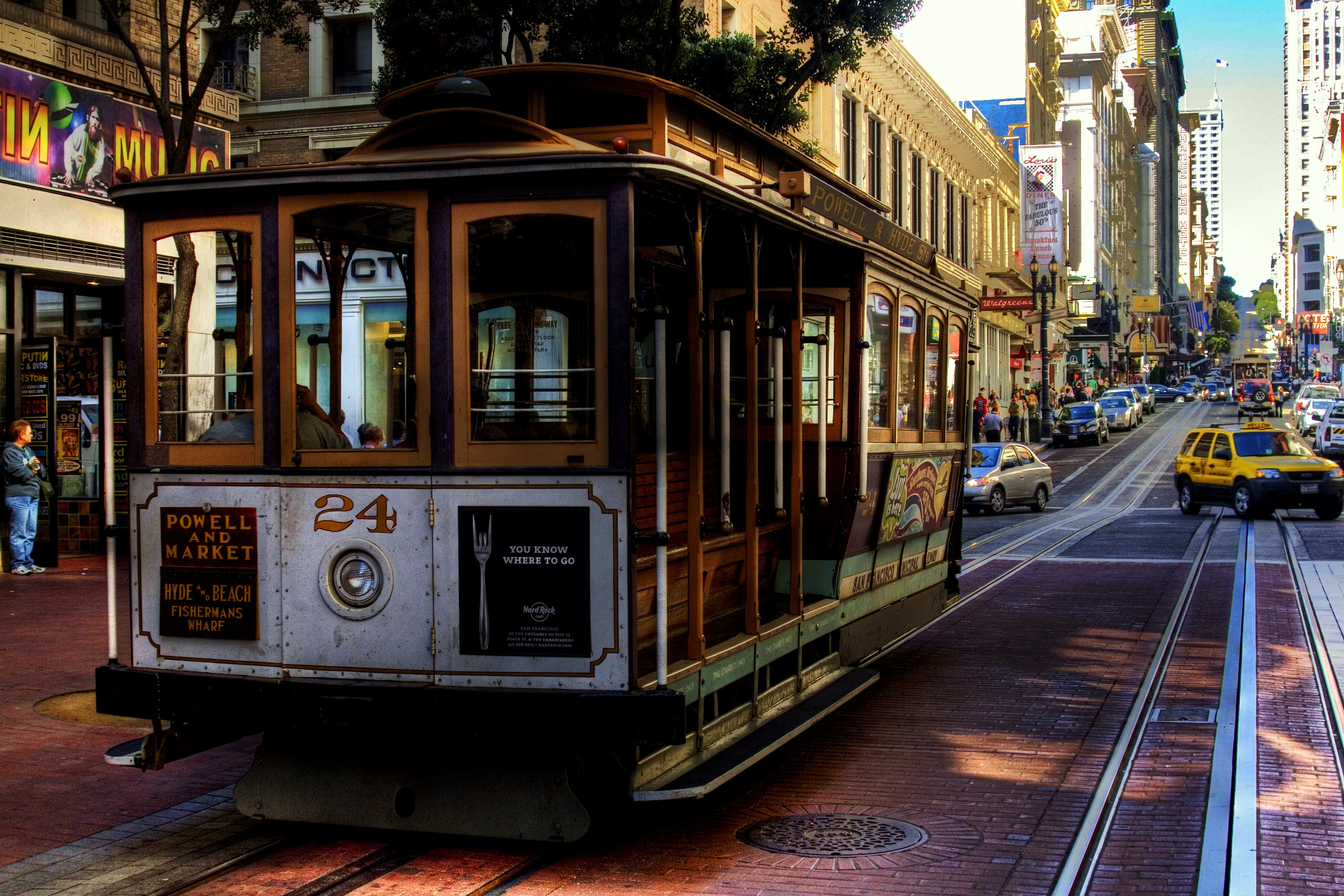
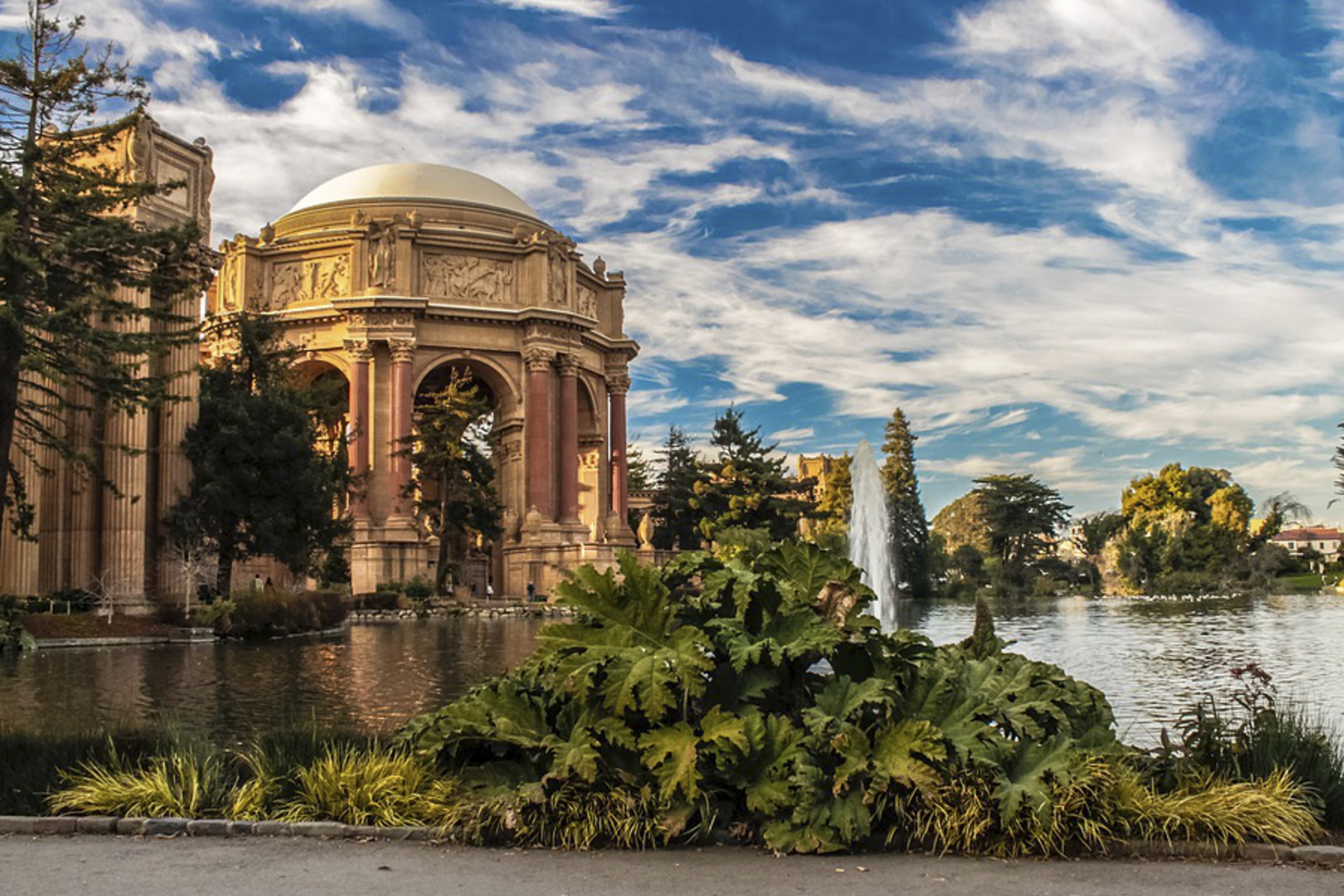
"Vibrant. Dynamic. Cutting edge. The San Francisco Bay Area is a global hub of commerce, innovation, culture and recreation. UC Berkeley sits in the East Bay region with easy access to both San Francisco and Silicon Valley, and a few hours from Yosemite, Napa Valley, Point Reyes and Lake Tahoe. When visiting UC Berkeley, we encourage you to explore the area, hike in the hills, indulge in the California food scene and enjoy the culture and optimism of one of the most desirable areas in the world." Click here for more...
Convention Venue
University of California, Berkeley
310 Sutardja Dai Hall
Berkeley, CA 94720, USA
UC Berkeley is located near the Downtown Berkeley BART station, and is easily accessible from both SFO and OAK airports using the Bay Area Rapid Transport (BART) metro system.
Sutardja Dai Hall is on Hearst Avenue on the north side of campus. The Shattuck Hotel is in Downtown Berkeley very close to the BART station. The Graduate Hotel is on Durant Avenue on the south side of campus.
S3PM-2017 Agenda At-a-Glance:
Interactive and Printable versions.
S3PM-2017 Map At-a-Glance:
Interactive and Printable versions.
Wireless Network
Guests to UC Berkeley can access the open wireless network CalVisitor for internet access from any Wi-Fi enabled device. Another option is if a visiting scholar's home school takes part in the Eduroam program, they may use their home credentials to access the internet.
Click here to check venue Wi-Fi information.
Campus Shuttle
UC Berkeley’s Bear Transit offers transit options for getting to the conference venue from stops by Downtown Berkeley BART station and near many conference hotels. Note that it is usually faster to walk unless there is a shuttle right there! There are multiple routes ($1 exact change).
Click here to check UCB Shuttle information.
Public Parking
Finding parking spots can be difficult in downtown Berkeley. The conference does not provide reserved parking for the attendees. Be advised that many of the parking lots around campus require campus permits, but there are public parkings too at daily or hourly rates.
Click here to check potential parking options.
Reserved Lodging
Option 1 (Luxury): Hotel Shattuck Plaza
2086 Allston Way
Berkeley, CA 94704, USA
Tel: (510) 845-7300
DirectionsNote: The group rate ($239/night for Delux King double rooms) will be available for a reserved block of rooms, until the block sells out and before May 19th, whichever comes first. You can make a reservation either online, by using the booking code 1706S3PM in hotel's online reservation portal, or by calling the hotel directly at (510) 845-7300 and mentioning the code.
Option 2 (Budget): The Graduate Berkeley
(Formerly Hotel Durant)
2600 Durant Avenue
Berkeley, CA 94704, USA
Tel: (510) 845-8981
DirectionsNote: The group rate ($179/night for single & $189 for double rooms) will be available for a reserved block of rooms, until the block sells out and before June 7th, whichever comes first. You can make a reservation by using this direct web link, or by calling the hotel directly at (510) 845-8981 and mentioning the group name S3PM-ICSI.
Option 3 (Budget): The Bancroft Hotel
2680 Bancroft Way
Berkeley, CA 94704, USA
Tel: (510) 549-1000
DirectionsNote: The group rate ($159/night for single rooms) will be available for a reserved block of rooms, until the block sells out and before May 17th, whichever comes first. You can make a reservation by calling the hotel directly at (510) 549-1000 and mentioning the event name.
Other Lodging
Option 4 (Luxury+): Claremont Club and Spa
41 Tunnel Road
Berkeley, CA 94705, USA
Tel: (510) 843-3000
DirectionsOption 5 (Budget+): Downtown Berkeley YMCA
2001 Allston Way
Berkeley, CA 94704, USA
Tel: (510) 848-6800
DirectionsClick here to check other lodging options.
Another option to explore is Airbnb. But we recommend that you first check with your institution regarding their reimburement policies, as some universities do not accept such alternatives.
Invitation Letters
If you need an invitation letter in order to apply for a US visa at a US Embassy or Consulate Office, please send your request via an e-mail, with the following information:
- The title of your paper(s), poster(s), mini-symposium talk(s), and/or keynote speech (if applicable) or any other specific information supporting the necessity of your attendance to be presented to the Consular Officer. Please include the names of co-authors and conference sessions.
- The full mailing address to which the letter is to be addressed.
Berkeley highlights
- Tilden Regional Park: Enjoy hiking, biking, picnics and the botanical garden in Berkeley’s hilltop park.
- Berkeley Marina: Sailing, kite-flying and leisurely strolls on the Bay.
- North Berkeley Farmers’ Market: Open-air market offering fresh produce and goods from local farmers.
- Berkeley Rose Garden: Lovely views, fragrant strolls and 3000 rose bushes in this 1930s park.
- Visit Berkeley: Find additional resources for exploring the city.
Beyond Berkeley
- Visit Oakland: Just a few miles from campus, Oakland is a hot spot for dining, nightlife, art and culture.
- San Francisco Travel: Explore the sights, attractions, food and culture of this ever-changing city.
- Visit Napa Valley: One of the most famous wine regions in the world is about an hour from campus.
- Muir Woods National Monument: A “tree-lover’s monument” to towering, ancient redwoods.
- Point Reyes National Seashore: Camp, hike, bike or beach in this natural and wildlife preserve.
San Fransisco
Less than one hour away via Bay Area Rapid Transport (BART)!
- Pier 39: From amazing views and a sea of sea lions to chowder bread bowls and California wines.
- Golden Gate Bridge: Once called "the bridge that couldn't be built," today it is one the seven wonders of the modern world.
- Golden Gate Park: One of the largest urban parks in the world, Golden Gate Park stretches for three miles on the western edge of San Francisco.
- Lombard Street: This scenic road on Russian Hill features tight turns, fragrant gardens and beautiful views of the bay, Alcatraz, and Coit Tower.
- Alcatraz Island: Alcatraz became a federal penitentiary from 1934-1963, housing famous convicts such as Al Capone and George "Machine Gun" Kelly.
- California Academy of Sciences: Home to an aquarium, planetarium, natural history museum, and world-class research and education programs,.
See more on the top 20 San Fransisco attractions. And here is a video review by New York Times!
Sponsors & Partners
Interested in becoming a sponsor? Get in touch
